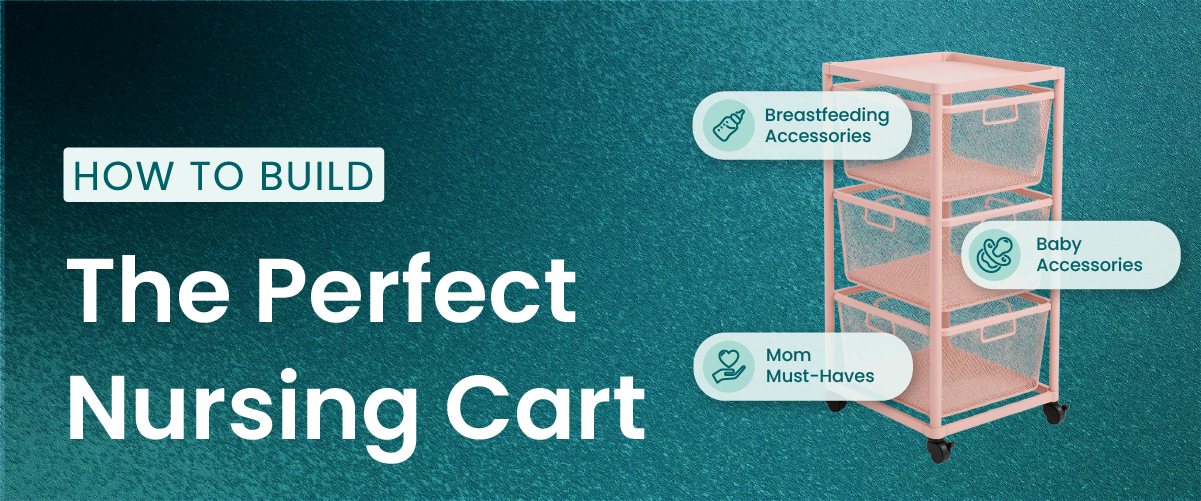A pause breastfeeding that happens for any reason doesn’t have to be a permanent end. In many cases, restarting is possible with the right steps and made easier with the right support.
IN THIS ARTICLE:
Pregnancy Fatigue
It goes without saying that many women experience fatigue during pregnancy—for some people, it can even be their first sign of pregnancy! It’s typical for energy levels to ebb and flow throughout the trimesters. Many pregnant people find they struggle the most with fatigue in the first and third trimesters, but they return to feeling normal energy levels during the second trimester. It shouldn’t be surprising that feeling so tired comes with the territory of pregnancy! After all, your body is working hard 24/7 and growing into a whole, completely new person. That takes a lot of effort! What exactly does that mean? Even when you're sleeping, your body isn’t getting the deep rest it usually gets. Remember it is still busy building a baby. While there’s nothing that can be done to decrease your body’s need to work all day and night, you can help support your body in doing that extra work. Here are my top 7 tips to help you stay energized during pregnancy:
Importance of Prenatal Nutrition
1. Hydrate
Not having enough water can contribute to pregnancy fatigue. Most people do not realize how easy it is to become slightly dehydrated when expecting a baby. Aim to drink at least half of your body weight in ounces of water each day. For example, if you weigh 150 pounds, you want to drink at least 75 ounces of water each day. It can be helpful to start your day by drinking 6 to 8 ounces of water when you first get up. Carry a water bottle everywhere. So you can sip on water all day long.


Not getting enough water can contribute to pregnancy complications like low amniotic fluid levels and preterm labor, so it’s extremely important to make sure your body is getting what it needs. If you don’t like the taste of water you can add lemon or lime juice or put a few mint leaves in a pitcher of water in the fridge. Sometimes adding a little bit of flavor to it can make it so much easier to meet your daily goals!
2. Eat protein-rich foods
Did you know you need to eat more than your usual amount of protein while you’re pregnant? Proteins are the building blocks of the human body and you are building a new body inside of you! You should aim for at least 80 grams of protein a day. If you exercise or are very active, you’ll want to have more. Some people feel their best when they are consuming 100 to 120 grams of protein a day during pregnancy. Inadequate protein consumption during pregnancy can be a contributing factor to complications such as intrauterine growth restriction in addition to increased fatigue, so try to eat some form of protein with every meal and snack throughout the day.
3. Choose complex carbs
Complex carbs like whole grains and sweet potatoes slowly digest in your body. They provide a more sustained source of energy. Instead of eating foods that are processed, contain a lot of sugar, or are made with white flour, choose foods that are complex carbohydrates to help keep your energy levels up. Some great options for healthy carbs during pregnancy are whole grain or sourdough bread, quinoa, beans or lentils, sweet potato, and oatmeal.
Build Healthy Habits
4. Avoid caffeine
We live in a society that has a caffeine source on just about every corner! It is easily accessible, so many of us have made coffee a part of our morning routine. It’s recommended that you not consume more than 200 mg of caffeine a day while you’re expecting, but even consuming that limited amount can have an overall negative effect on your energy levels throughout the day. While coffee and other caffeine sources can make you temporarily feel more awake, they often involve a crash that happens as those effects wear off. Try cutting caffeine out of your day together and see how you feel! You can substitute herbal tea in your morning routine and hopefully see a positive increase in energy later in the day, too.
5. Establish a morning routine
Creating a morning routine can help you get the day started in the right direction. It often helps reduce overall stress levels, increase energy levels, and help you accomplish more throughout the day. Everyone’s morning routine will be a little bit different because we all customize it to our own needs, but there are a few common aspects you should try to include:
- Drink water: it helps keep you hydrated!
- Move your body: this can be as simple as deep breathing or stretching
- Eat a healthy breakfast: remember to include a source of protein!
- Set your intention for the day: increases daily focus and productivity
6. Move your body every day
Exercise is so important for our overall health and well-being. That statement continues to hold true during pregnancy. It might seem counterintuitive to exercise when you are already tired, but exercise often helps to increase energy levels by making your body stronger and have more stamina.
Your exercise routine during pregnancy does not have to be anything extreme.
My favorite thing to have my clients do is go for a 30-minute walk every day—it can be around your neighborhood, yard, or even your living room! Just walk for 30 minutes at a time to get your blood flowing and your heart rate up. If you enjoy yoga or swimming, those are also wonderful activities to continue during pregnancy. In general, it is okay for you to keep doing whatever exercise routine you were doing before you conceived, but you will probably have to modify those activities as your baby grows. Work with someone knowledgeable about prenatal exercise and make sure you listen to your body!
Supplements
7. Check your iron levels
Sometimes pregnancy fatigue is extreme and it can be caused by anemia during pregnancy. Your provider should check your iron levels at the start of care and again at the beginning of the third trimester. While it’s normal for your numbers to drop a little bit with physical changes that occur during pregnancy, if your iron levels fall too much it can create extreme fatigue. If that happens to you, your provider will probably recommend taking an iron supplement. You can be proactive about those normal shifts in iron levels by focusing on daily incorporating foods high in iron into your meals and snacks. Some good iron-rich foods to eat during pregnancy are animal meat, leafy green vegetables, beans, and eggs.
I hope this has been helpful and given you some ideas on how to help maintain your energy levels during pregnancy. Even if you’re doing all the right things, it’s normal to need a nap during the day. Remember, your body is working hard all day and night! Needing a little extra sleep is to be expected. If you’re ever worried that the amount of fatigue you’re experiencing is outside of normal, contact your healthcare provider and let them know.
Information provided in blogs should not be used as a substitute for medical care or consultation.








